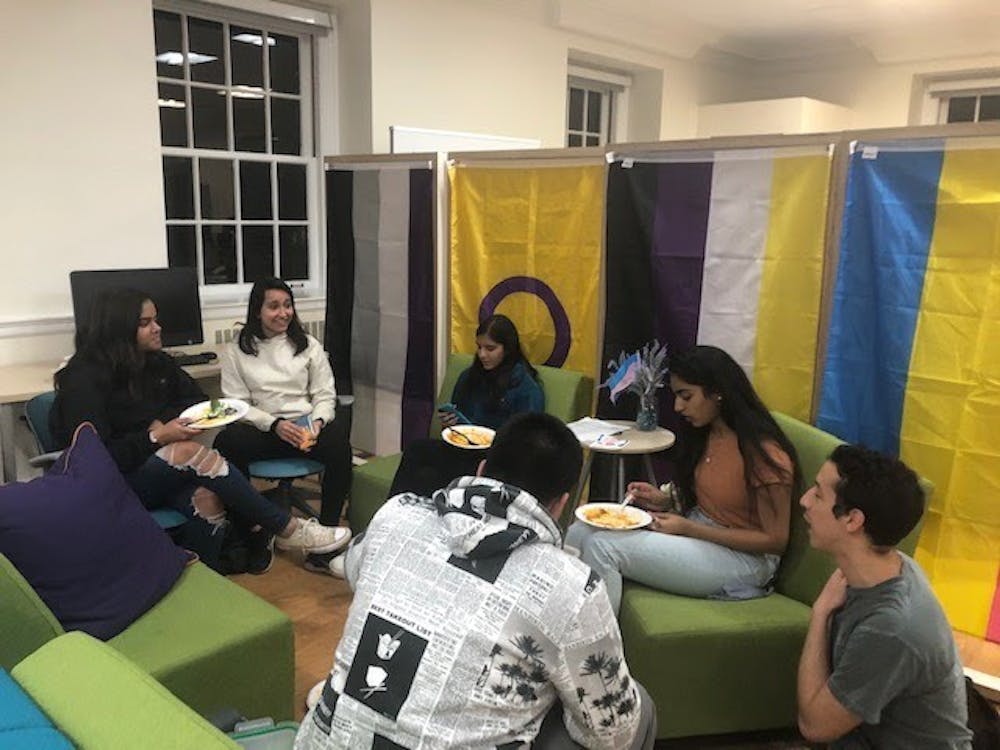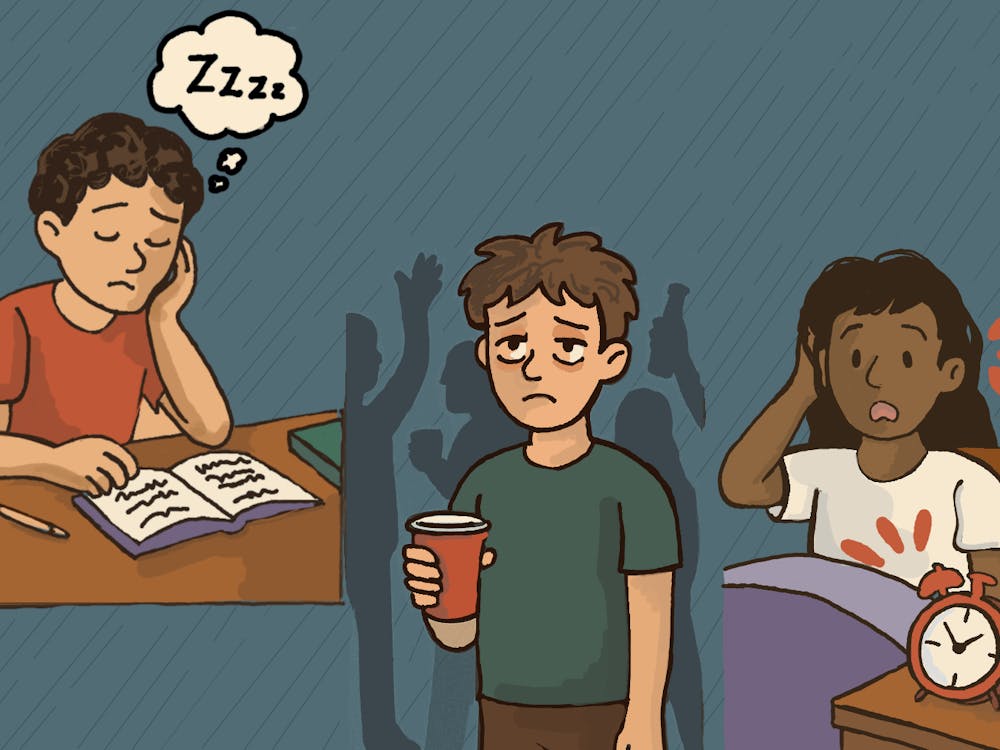Students filled the University’s LGBTQ center Wednesday evening to discuss the importance of intersectionality and the steps we can take to be a more inclusive and accepting society. Approximately 40 students gathered to learn more about what it means to be queer — having a non-heteroromantic, non-heterosexual orientation or a non-cisgender identity — or an ally in the South Asian community. Collaboration between the Indian Student Association and the Queer Student Union led to the creation of this multicultural dinner dialogue. Students engaged in insightful conversations with one another while enjoying a catered Indian meal from Milan Indian Restaurant.
“One of my goals is to reach out to other multicultural student organizations and plan what we call multicultural dinner dialogues,” said Blair Smith, vice president for education of the Queer Student Union and third-year College student. “So usually two times a semester we'll work with another organization to create a space to have a dialogue about identity broadly and specifically the intersections of LGBTQ and other cultural identities.”
While ISA and QSU have collaborated in the past to host panels about the experiences of South Asian LGBTQ people, this event allowed for more intimate discussions and served as a space for students to share their personal experiences. A similar joint event was held two years ago, and both student organizations felt it was important to bring this back. Moreover, they wanted to provide a space for students to speak freely about a topic that is rarely discussed with the South Asian community.
“Part of our presentation [focuses] generally on what it means to be a good ally,” Smith said. “I'm hopeful that it will also be a space for people to discuss their personal experiences as embodying both South Asian and LGBTQ identities and how that intersection informs how they go about their lives.”
The discussion began with a presentation by Smith and Dhruv Sheth, ISA outreach co-chair and third-year College student. The presentation started by establishing norms for discussion in the space.
“We make it really clear that we don't assume anyone's gender, sexuality, romantic orientation or level of outness in any of our QSU events, especially our dinner dialogues,” Smith said. “[We] talk about using reflexive language, practicing non-judgment, respecting everyone's privacy … [having] a conversation about pronouns.”
The presentation then moved into a discussion of different facets of gender, sexuality and romantic orientation and provided information about religious practices that are prominent within South Asian cultures — including Hinduism, Islam, Sikhism and Christianity — and how those relate to queer and trans identities.
Attendees then split into nine smaller groups and were provided a list of open-ended questions to spark discussion. Topics ranged from the media portrayal of the LGBTQ community, especially in Bollywood films, to the interplay between religion and one's sexual orientation. Attendees were encouraged to share their own experiences related to the queer and South Asian communities as well as listen to the experiences of others. Some students shared how portrayals of queer people in Hollywood movies tend to exclude South Asians and people of color more generally, while others discussed the inaccuracies in queer representation.
“Facilitators from QSU and ISA will … [encourage] people to share their personal experiences and … broadly [talk] about how they have perceived both LGBTQ and South Asian identities anecdotally and then also in the media,” Smith said.
Pratyusha Veerareddy, ISA outreach co-chair and second-year College student, emphasized the value of sharing such personal experiences in a safe environment.
“Queer identity is not usually openly discussed among our friend groups or our families — that does not mean people are unwilling to have these conversations,” Veerareddy said. “It is important to use our role in our community to provide a space for such discussion.”
Attendees ranged from first through fourth years who appreciated the efforts of both ISA and QSU to create such a welcoming, safe and intellectually stimulating environment to have those important conversations.
“I came here because I felt like I don’t have enough intentional discussions about things,” third-year College student Grace Leffler said. “You can come across organic conversations, and I try to insert myself into spaces where there are organic conversations about meaningful things, especially involving identity.”
Third-year College student Areesheh Khan, who also attended the event, similarly emphasized the value of the dialogue and emphasized the rarity of such intersectional conversations.
“I feel like it's not a big enough conversation anywhere,” Khan said. “I honestly never thought that I would be in a space where queer and Muslim identities would be talked about so openly … Creating a space where [this] can be talked about is so valuable.”
This spirit of open, intersectional dialogue, according to Smith, should extend beyond the duration of Wednesday evening’s event.
“The hope is to encourage a conversation that lasts beyond the 90 minutes we're spending together,” Smith said. “[We hope] everyone will leave more informed about how South Asian culture and portrayal of LGBTQ identity has a substantial impact has a substantial impact on how South Asian queer and trans folks experience the University and the world more broadly.”







